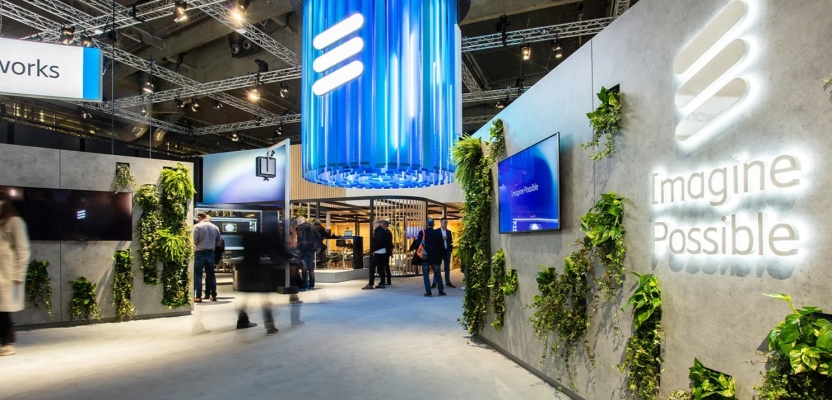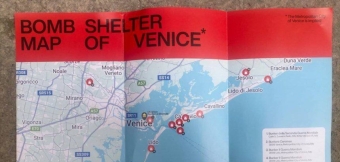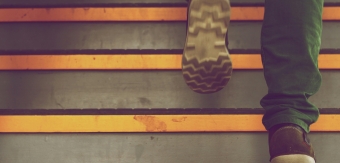Generally speaking, my annual Earth Day articles tend to revolve around collecting the most interesting activations from the year but this year, I was offered a pretty unique opportunity. A few weeks ago, I was contacted by Selina Donald, CEO and founder of woman-owned and run sustainability consultancy The Bulb, which has garnered international acclaim for its innovative sustainability strategies.
Selina is a fascinating women who has not only carved her own path of success but has also become an influential figure in the world of sustainability and environmental management for the events and creative industries.
Selina's journey to leadership began during her involvement in the London 2012 Olympic opening and closing ceremonies, where she had her ‘epiphany moment’. During her time working on the ceremonies, Selina realised that there was a gap in the market for a sustainable alternative to the traditional approach to events.
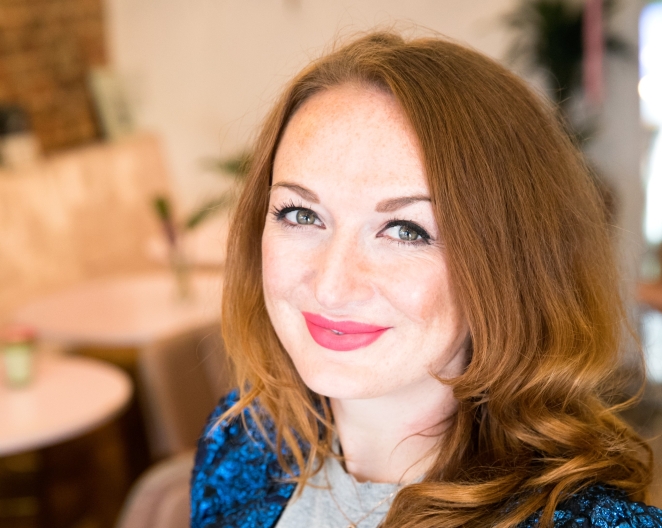
Selina’s expertise extends across a spectrum of high-profile events, including the England 2018 World Cup Bid, the Rio Olympics 2016, #March4Women, the Birmingham Commonwealth Games Opening and Closing Ceremonies.
Most recently, Selina has supported on the sustainability strategy for the UAE’s 52nd National Day show and COP 28 as well as creating major global experiential marketing agency, Jack Morton Worldwide’s first ever global organisation sustainability strategy: The PLANET Plan.
I sat down with Selina to talk about her career within the sector and how she works with organisations to create realistic and impactful sustainability strategies as well as her insights on sustainability trends and her vision for a more eco-conscious future.
Selina, your journey to leadership began during the London 2012 Olympic ceremonies. Can you share the ‘epiphany moment’ that led you to realise the need for sustainable alternatives in the events industry?
I love to talk about my ‘epiphany moment,’ because it is so fundamental to where I am and how The Bulb came to be. It happened when I was working on the London 2012 Opening and Closing Ceremonies, which served as memorable bookends for the most sustainable Games to date. I realised that this was how events could be - incredibly memorable experiences that were also sustainable and focused from the start on leaving a positive legacy for planet and people.
The way events have traditionally been planned and produced has left a heavy carbon footprint and they often haven’t considered their wider impact on the communities and societies in which they take place. I set up The Bulb in 2015 to champion sustainability and catalyse positive change in the events industry.
The Bulb has gained international acclaim for its innovative sustainability strategies. Could you highlight a specific project that you’re particularly proud of and explain how it left a lasting impact?
I will always be proud of the London 2012 Olympics, because they set the benchmark for how mega events like the Olympic Games could be done sustainably. More recently, The Bulb worked on the Birmingham Commonwealth Games Opening and Closing Ceremonies. We developed and implemented a robust sustainability and social values strategy, working with the Games team from the start of the process and creating a truly sustainable legacy for the Games and for the city of Birmingham.
We did this by focusing on real, on-the-ground activities and logistics that have the most impact in events. For example, we worked with the procurement team to embed sustainability as part of their scoring criteria.
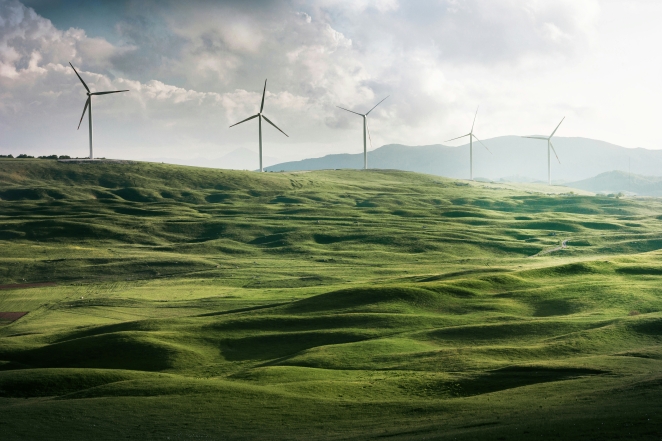
We also set targets that prioritised working with local suppliers, which drove down carbon emissions and boosted the economic boost to the local economy - resulting in a final figure of more than £4m. We created a plan for all event assets like tools used in the workshop, costumes, large props and scenic items, and as a result, 83 per cent of all assets were reused and we sent zero waste to landfill.
As a sustainability trailblazer, you’ve worked on high-profile events like the England 2018 World Cup Bid and the Rio Olympics 2016. How do you balance creativity and environmental consciousness in such large-scale projects?
At the start of any creative project, you have the opportunity to set objectives and decide how you are going to achieve them. To see creativity and environmental impact as mutually exclusive doesn’t make any sense to me, as a creative myself. It’s really about what you’ve decided is possible, then making it happen in creative and innovative ways that balance all key considerations.
The events industry has some of the most creative people of any industry I know. They thrive on challenges and are constantly pushing the boundaries of what we all think is possible. At The Bulb, we are lucky to witness and support a shift in mindset, in which all things are possible and incredible events with a positive impact are becoming the norm for some major events agencies.
I recently worked closely with events agency People to advise them as they created the United Arab Emirates’ 52nd National Day celebration. Every year, National Day is a jaw-dropping creative benchmark, and the event in 2023 was focused on being the most sustainable celebration to-date and resulted in being the first show to be certified with the world’s leading standard for environmental best practice, ISO 20121.
The PLANET Plan, developed for experiential marketing agency Jack Morton Worldwide, is a groundbreaking initiative. What inspired you to create a global organisation sustainability strategy, and what challenges did you face during its implementation?
As with all our work, Jack Morton’s PLANET Plan was a collaborative undertaking. We were inspired by the opportunity to create something truly innovative with a leading agency. Our ambition together was nothing short of creating new best practice for the event industry, to showcase what is possible in setting strategy, delivering it, and having real impact.
Those things are only possible when those who need to lead and deliver a strategy are brought into the process and aims from the start, and that requires engagement at all levels of an organisation.
We had to ensure that we understood the most pressing issues and driving motivations for those who are key to delivering the PLANET Plan before ensuring that was reflected in the language, structure, and clear delivery steps. Finally, we needed to ensure that we helped Jack Morton reflect their ambition and capacity, while stretching them a little - because change never happens when you’re coasting.
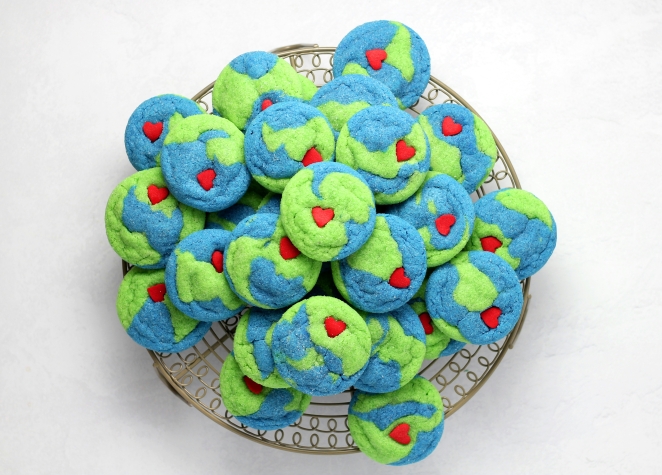
The ‘how’ is always a key challenge to translate a strategy into something that can be operationalised, measured, celebrated, and improved upon. So, we created clear processes and tools to support the strategy which could be adapted and localised to be useful wherever Jack Morton’s teams were working.
To sum it all up, the challenges of global initiatives like the PLANET Plan are really the same as the challenges of any plan, just bigger. What’s most important is to understand what you’re doing and why, who needs to do it and what they need in terms of awareness and resource in order to be able to deliver.
Sustainability trends evolve rapidly. What emerging trends do you see shaping the future of sustainable practices in the creative industries?
Sustainability trends are a fast-moving target, but a few are top of mind right now - and what we are keeping The Bulb clients abreast of. I’ll focus on the following three.
AI is part of so many conversations right now. It has enormous potential to boost creativity and innovation, and even bypass human biases in decision-making, but there are also potential dangers like creation and dissemination of false information. It’s a tool we are quickly having to get to grips with, and it’s one that creatives and people in the events industry are in an ideal position to use well. Just consider that generative AI is expected to become a $1.3 trillion market by 2032 with a need for at least 97 million specialists by 2025 to manage it.
Larry Fink, the CEO of Blackrock, said ‘There is no company whose business model won’t be profoundly affected by the transition to a net zero economy.’ The top 2,000 largest publicly listed companies with net zero targets have more than doubled in the last two years, signalling a systemic shift toward efforts to remove, reduce and off-set carbon as crucial to current and future business success.
No sector is immune to this and it’s an ‘all hands-on deck’ situation, as it requires holistic thinking and systemic change to the way we do things. In our industry, we are championing circular economy thinking throughout the process of an event, from creative design to planning, delivery and post-event legacy.
Something that might come as a surprise is social polarisation. Lack of trust across society is reaching a crisis point, in which people don’t want to even interact with those with different beliefs or identities, divisive narratives fall on welcoming ears in social media echo chambers and distrust in traditional institutions is at an all-time high. This is an opportunity for creatives and people in events, in particular, to use beauty, art, storytelling, experiences, and events to bring people together, to create relationships, to engage and inform, to inspire and unite.
The Bulb employs a team of eight consultants. How do you foster a culture of sustainability within your organisation, and what role does each team member play in driving impactful change?
Firstly, we only recruit people who are already purpose-driven sustainability experts, so everyone comes on board with their own driving passion for social and environmental impact. Secondly, we recruit with the aim of ensuring our growing pool of consultants add diversity and depth of perspective that reflects the wider world.
We come from different cultures, some have hidden disabilities, some are members of the LGBTQI+ community and, right now, we have the advantage of being small, so everyone contributes to The Bulb’s culture. As we continue to grow, we focus on putting ‘governance’ in place to ensure we maintain our good culture.
We are most successful as a business if everyone who works for The Bulb feels safe and able to bring their most powerful, creative self to work every day. That means the tech we use for meetings matters, so no one is excluded because they need subtitles. We partner with senior experts in DEIBA and sustainable leadership to ensure we are always expanding our understanding of how we can be inclusive and create a culture that can meet the rapid changes in our world. We foster a culture where everyone has an equal voice and feels safe to speak up if they think we could be doing something better, either for our employees or in our approach to client work.
In your experience, what misconceptions about sustainability do organisations often hold, and how do you address them when working with clients?
The first point that springs to mind is that, over the past few years, the term ‘sustainability’ has become increasingly misunderstood to mean simply ‘environmental.’ But true sustainability means something that is good for people, for planet and a business’s financial wellbeing. If it’s not sustainable socially, environmentally, and economically, it’s not sustainable. Sometimes this is the first thing we need to address, because it is fundamental to ensuring our clients have a holistic understanding of what sustainability means, are then using the right language and taking a holistic approach.
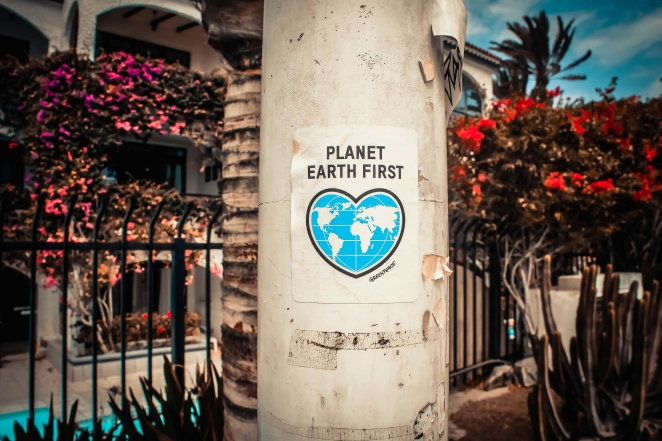
As sustainability has become more mainstream, there are those who think ‘you write a sustainability strategy and then you’re done.’ We’ve reached a point where a lot of our clients have done really good work delivering an initial sustainability strategy that really made them stretch, and now they’re asking ‘How can we engage our workforce better?’ ‘How can we operationalise this strategy with greater breadth and depth?’ Wider trends and pressures are demanding that leaders and their teams a) have a holistic understanding of sustainability and b) understand that it’s a never-ending journey that also takes time and full commitment to do well.
Earth Day is approaching. What message would you like to convey to individuals and businesses about their role in preserving our planet?
If you feel like small things don’t matter, I can assure you they do. It might be that people reading this want to feel safer in their own workplace, or they want to help a particular community. Let Earth Day be a focal point to ask ‘What makes me truly passionate when it comes to making a difference on this planet?’ Don’t wait until you’re 100 per cent clear. When you get an inkling of what the answer might be, DO something, because a lot of ‘somethings’ from a lot of people can add up to a collective shift in mindset, action, or even policy or workplace culture.
Selina, you’ve navigated the intersection of creativity, business, and sustainability. How can designers and advertisers incorporate eco-consciousness into their work without compromising on aesthetics?
I would love to bring that question back to creatives themselves, because they are the ones who create beautiful and brilliant solutions to tricky questions. It’s literally their job. I often think the start of answering such a question is to ask it with a genuinely open mind - one that isn’t already starting with the assumption that being eco-conscious has a negative impact on aesthetics. What if the question were flipped? ‘How can I reflect the beauty of an approach that does no harm, even if people never know that’s the impact?’
Lastly, what’s your vision for a more sustainable and environmentally responsible future, especially within the events and creative industries?
I’ll keep this brief, because, in the midst of the complexity of our current world and some of the trends and issues I’ve talked about previously, the answer is simple: the future needs us. All of us.
It needs our creativity and our leadership, individually and collectively. I offer that to anyone reading this as a challenge and a source of inspiration. A better world is possible, and you can be part of leading the way there. You don’t have to have a job title that says you’re a leader to lead. You can do it wherever you are, today. Do it, and do it creatively, for us all.

